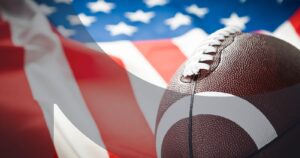 Ask Rudy Giuliani how one major event can change the public’s perception.
Ask Rudy Giuliani how one major event can change the public’s perception.
Before the tragic events of September 11, 2001, New York’s then-mayor was not exactly a media darling. His personal life was splashed on the pages of New York’s tabloids, the city’s finances were in awful shape, and His Honor was trying to push through funding packages to build, of all things, sports stadiums. By the time the sun set on September 11, 2001, however, Giuliani was considered a hero, and even his harshest critics found themselves cheering the Mayor, and the man.
The Super Bowl, of course, is not a lifetime-changing event for the world. It is, however, the biggest single television event of the year, a stage of unrivaled proportion that can make or break careers, and not just on field.
We all know that public relations comes in different forms. A company can attain good public relations through a variety of means – a splashy product, great financial performance, or controversy. Individuals, likewise, can achieve good public relations through a variety of means. Of course, companies and individuals can also drum up negative PR any number of ways.
When watching this year’s Super Bowl (in between beers), I took careful note of who I thought was winning and losing the PR war and why. Here’s my list:
The New England Patriots:
So much has been written about how the Patriots are the epitome of the concept of a “team” – and it’s too hard to argue otherwise – with no real stars, personalities who seem downright boring, and an absolute lack of controversy. No doubt many companies and organizations can learn by the Patriots’ example, who by hiring the right personnel, retaining key employees, and making smart transitionary moves have been able to secure their spot as the top “company” in their sector. You don’t win titles, or market share, by hiring bad people or rewarding those who don’t deserve to be so rewarded. The Patriots didn’t need anymore good PR, but they got plenty by performing at the level that was expected of them, something that is difficult in days of high expectations regardless of the business.
GoDaddy.com:
The domain registrar made big waves with its commercial parodying the FCC and the fact that two of its ads were rejected by Fox. After one GoDaddy.com ad did actually air, the NFL forced Fox to snuff out the second ad. GoDaddy.com garnered enough press to make any PR person salivate, and the privately-held company need not worry about being transparent when it comes to its finances. GoDaddy.com founder Bob Parsons did a nice job of chronicling the media circus on his weblog, and the company certainly got its brand in front of millions of people who had never heard of it before. Was it worth the money? Parsons seems to think so, and considering he’s the one cutting the checks at the company, that’s probably all that matters.
Ameriquest Mortgage:
Certainly not a small name to those of us who track the mortgage sector, but for most consumers, Ameriquest is one of those companies that doesn’t conjure up much in the way of brand recognition. The company’s two well-received commercials during the game, however, could change that. What was most important for Ameriquest is attaching some positive sentiments to the company’s name, because it’s currently under fire from consumers and former employees for using deceptive practices in its sub-prime mortgage business. For Ameriquest, the charges couldn’t have come at a worse time, as the company has invested heavily in trying to fancy up its image to attract prime mortgage customers. The Super Bowl served as a nice showcase for the company and served as a stop-gap solution to Ameriquest’s PR ills (not that it was planned that way). Ameriquest comes out on the winning side due to fortuitous timing and the fact that more people will read stories about Super Bowl ads than the company’s problems.
Napster:
The digital music company spent a decent chunk of change on an unimpressive commercial that scored poor marks in almost every consumer study. Napster received a lot of pre-game attention for its ad, which kicked off a $30 million campaign aimed at taking on Apple’s iTunes service – and then delivered a dud. To Napster’s credit, the ad was foiled, inadvertently, by Anheuser-Busch’s, whose preceding ad showing soldiers returning home from overseas to the cheers of people waiting in lines at airports surely caused a tear or two, and some discussion. Then again, Napster lost for another reason as well.
iTunes (Apple):
Napster’s website traffic rose “greater than 30%” on Super Bowl Sunday. Traffic to iTunes’ website was up more than 170%. ‘Nuff said. See comScore Media Metrix’s press release on the subject for more information.
Terrell Owens:
A supremely talented football player, the Philadelphia Eagles’ wide receiver has rightfully and wrongfully garnered some wretched PR on and off the field over the years. On Sunday, Owens played one of the gutsiest games anyone has ever played, coming back from a serious ankle injury despite his doctor’s best wishes and doing it while keeping his mouth (often the cause of his problems) shut. Owens’ on-field performance, and his surprisingly modest behavior, won over a lot of sportswriters and fans. In the end, this should translate into even greater commercial opportunities, ranging from endorsement deals to royalties from jersey sales. Perhaps Owens finally came to the understanding that as a football player, if he just went out and did his job – in this case, going way beyond the call of duty – he’d be rewarded with the respect he craves.
MC Hammer:
Resurrecting a career isn’t easy, and the “Can’t Touch This” performer didn’t help himself with a spoofy spot for Lay’s potato chips. (I guess he destroyed whatever valued he gained from being on a show called “The Surreal Life.”) I watched the game in a bar, and the 60 or so people present were scratching their heads after this commercial. In fact, many people couldn’t figure out whether it was actually MC Hammer in the commercial. Regardless, Hammer may have cemented himself in the b-list celebrity hall of shame.
National Football League:
Though ratings for the big game fell slightly from a year ago, the Super Bowl is still the highest-rated television event every year. (It has been each year since 1995) The NFL was accused this year of “goody two-shoeing” the event after last year’s wardrobe problem, but the league knows what’s best, and it knows it holds considerable sway over its advertisers and the television networks that air its games. While the NHL remains on strike, MLB is hampered by steroid allegations, and NBA players create controversy enough to keep the league on edge, the NFL remains the best-managed professional sports league – and the most profitable. The Super Bowl simply highlights the league’s dominance over its competition for entertainment and advertising dollars.
This article, written by Ben Silverman, originally appeared in PR Fuel (https://www.ereleases.com/prfuel), a free weekly newsletter from eReleases (https://www.ereleases.com), the online leader in affordable press release distribution. To subscribe to PR Fuel, visit: https://www.ereleases.com/prfuel/subscribe/.
